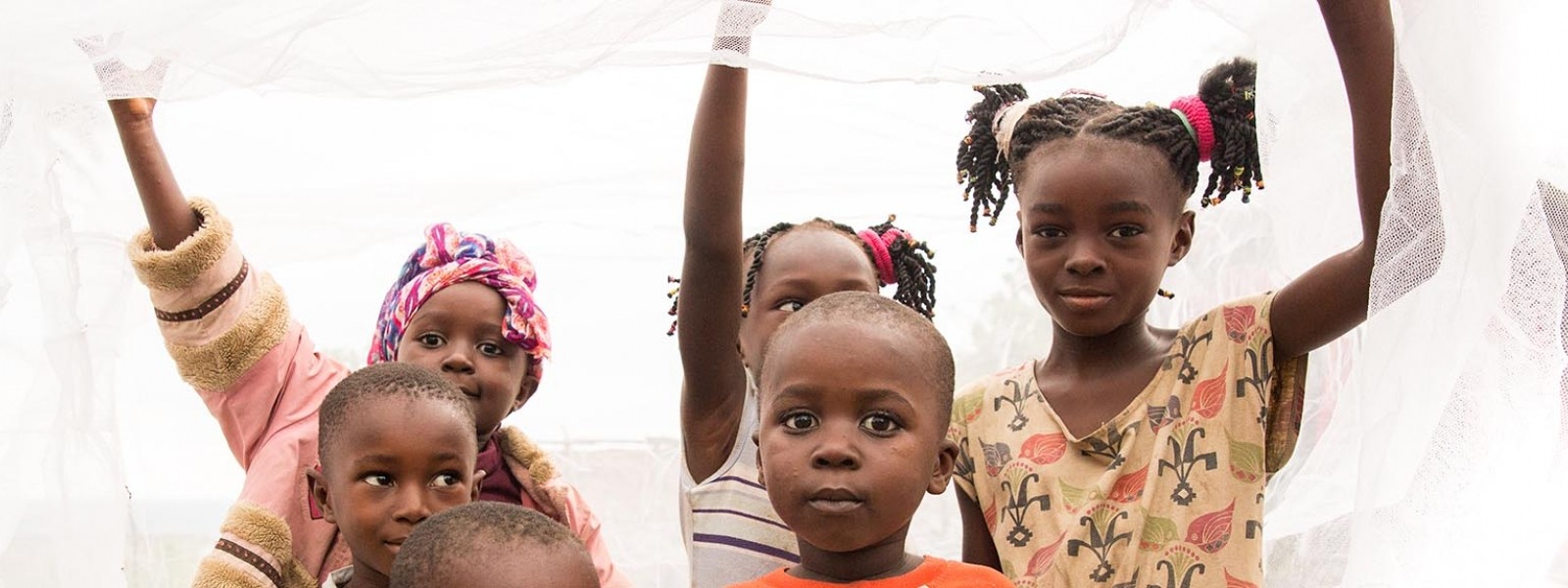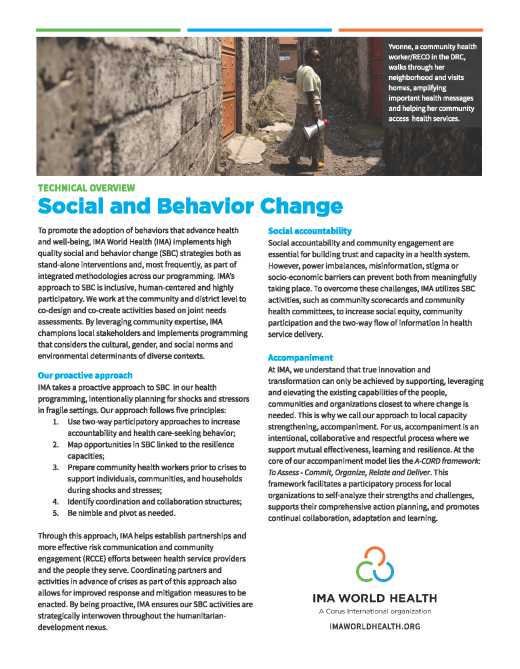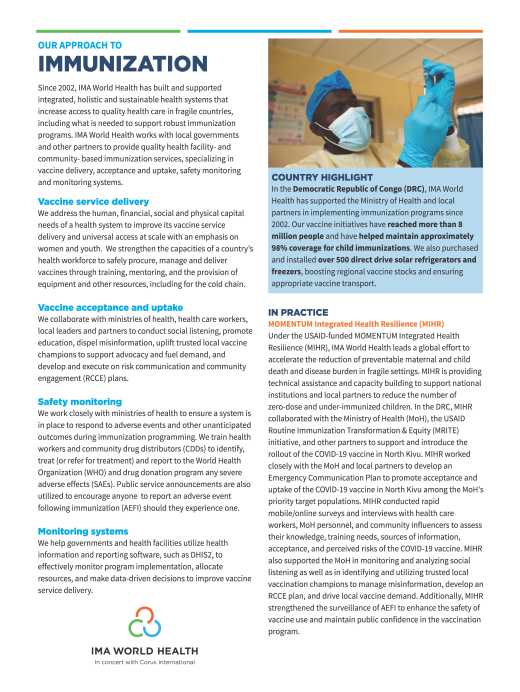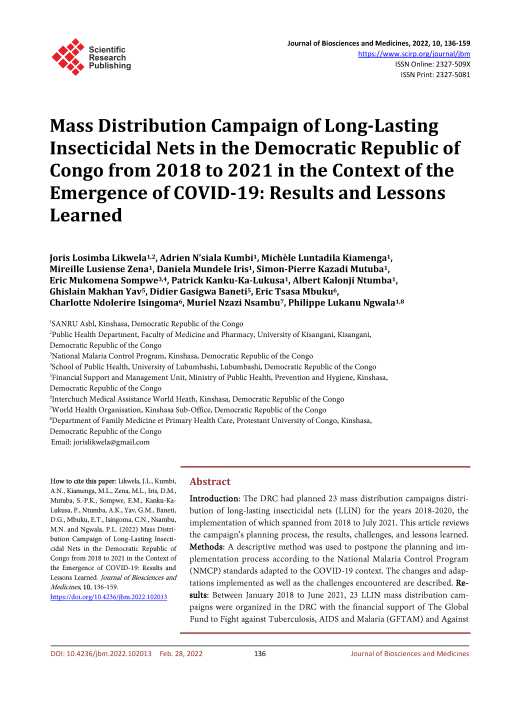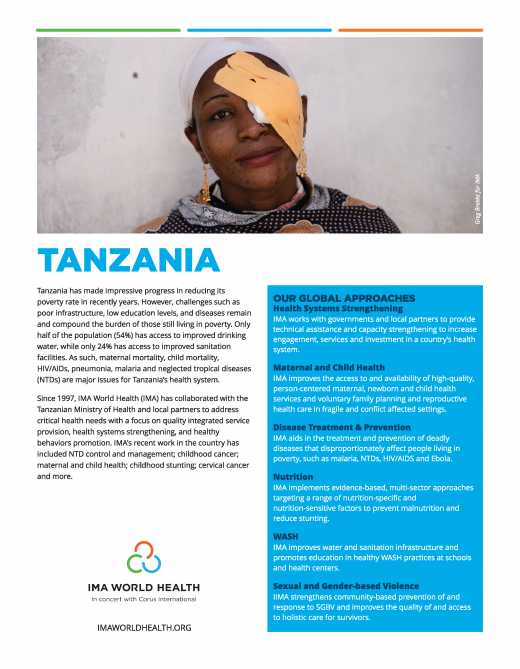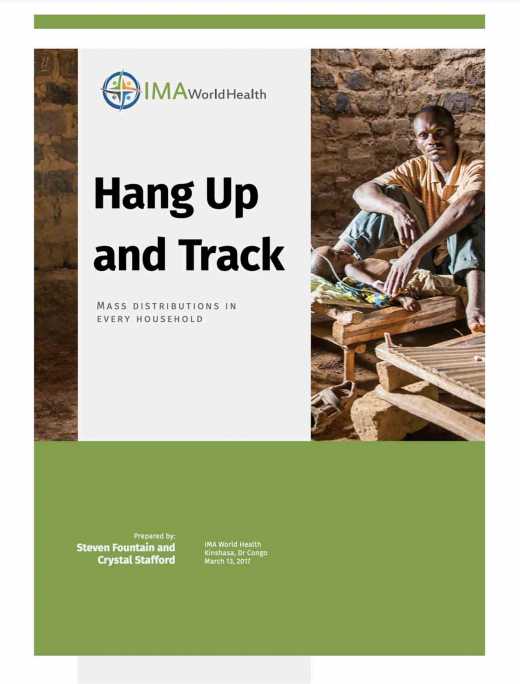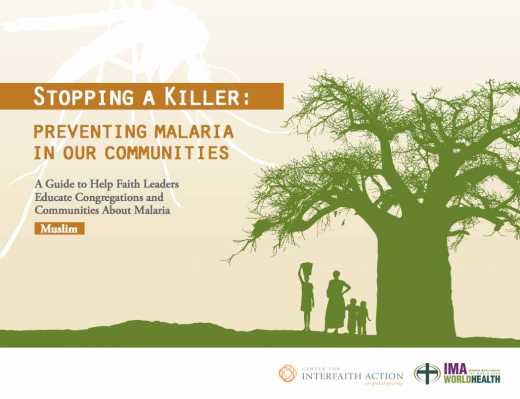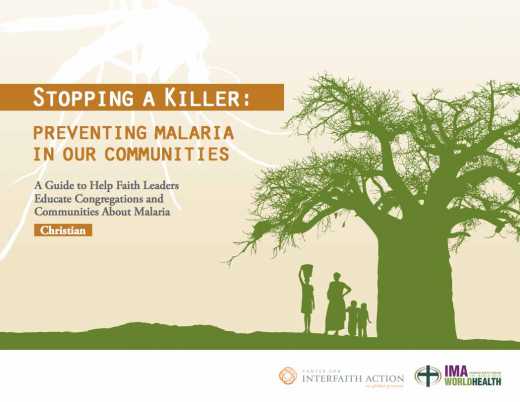BACKGROUND
Although the number of cases globally has nearly halved since 2000, malaria remains a major cause of preventable illness and death worldwide. The risk is particularly high among children under 5 and pregnant women in sub-Saharan Africa, where the World Health Organization estimates 90 percent of cases and 92 percent of deaths occur.
IMA World Health works to prevent and treat malaria in some of the most insecure and challenging areas of South Sudan and the Democratic Republic of Congo. Here, IMA ensures that pregnant women access intermittent preventive therapy, or IPTp, to prevent malaria during pregnancy and that they and their young children sleep under long-lasting insecticide-treated nets, or LLINs.
In DRC, IMA, with approval from the Ministry of Public Health and funding from the Against Malaria Foundation and UK aid, has distributed close to 1.3 million nets in Kasai and Nord Ubangi provinces through the Access to Primary Health Care Project. To ensure that every household received the intended nets, IMA devised a Hang Up and Track or HUT campaign in which community health workers distributed the LLINs, installed them in each household and recorded household registration data using smart phones to ensure accountability and accuracy.
The innovative HUT approach has been found to promote higher net-use rates than traditional methods, in addition to giving an unprecedented level of transparency and accountability to net distributions.
OUR PROJECTS
DRC/Access to Primary Health Care Project (ASSP): With funding from the UK’s Department for International Development, ASSP strives to reduce malaria-related morbidity and mortality in the DRC among pregnant women and young children, a key strategy for improving primary health care. Between 2012 and 2018, ASSP has distributed 2.26 million nets through routine and mass distribution programs, and it works to increase the number of pregnant women receiving at least two rounds of IPTp to 85 percent, totaling 1.27 million. To accomplish long-term goals, ASSP reinforces the technical capacities and managerial skills of health zone management teams to improve malaria performance.
DRC/Contribution to Universal Access in the Intervention Against Malaria: Under the new financing model of The Global Fund to Fight AIDS, Tuberculosis and Malaria, and with management by long-time partner SANRU, IMA World Health implemented malaria interventions in 35 health zones in North Kivu (33 health zones) and South Kivu (two health zones) provinces from 2015-2018. Over 1 million long-lasting insecticide treated nets (LLINs) were distributed to pregnant women and children under one, and prenatal consultations and preschool medical screening for children were conducted. Out of the 5,663,676 patients suspected of malaria, 97 percent of cases were tested in health facilities and community care sites using Rapid Diagnostic Tests or Stained Blood Films.
Global Fund expanded the scope of work for routine distribution in 2018 to include managing the distribution of tuberculosis and HIV/AIDS treatment and prevention supplies and equipment. IMA’s geographic coverage increased late in 2018 to include the province of North Ubangi. IMA teams in both provinces are engaged in rapid start up for routine distribution to address all three diseases.
In addition to routine distribution, Global Fund supports province-wide mass distribution of LLINs. Working as a sub-recipient to partner SANRU, in 2019 IMA will manage mass distributions in five provinces: North and South Ubangi, Mongala, Tanganyika and Haut Lomami. While data for most mass distributions in the region are collected by paper forms, which is cumbersome and high risk for data quality issues, IMA has been using smartphones and open source software since 2015 as an innovative and transparent electronic data collection method.
South Sudan/Rapid Results Health Project: IMA ensured that malaria diagnostics and treatment reached some of the most rural health facilities in this 24 County primary health care improvement project. By using innovative performance-based contracting, IMA incentivized the government to ensure RDTs and ACTs reached target health facilities and were used appropriately to diagnose and treat malaria.


